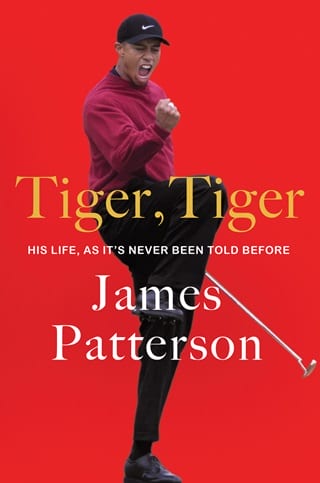Chapter 59
The 134th British Open
The Old Course, St Andrews Links
St Andrews, Scotland
July 14–17, 2005
The only way you don’t come home with the British Open,” Hank Haney tells Tiger, “is if you don’t work enough on your putting.”
Tiger agrees.
He putts with a Titleist Scotty Cameron Newport 2. He’s used some version of this putter since the 1997 season, though this year he’s switched his driver to the steel-shafted Nike Ignite 460 and his 3-wood to the Nike Ignite T60—striking all his clubs against the Nike One Platinum TW, the high-spinning four-piece ball that’s the successor to the Nike Tour Accuracy.
At noon on Thursday, July 14, Tiger’s on the 14th when first-round play pauses for two minutes of silence. One week earlier, terrorists bombed England’s capital city, killing fifty-two people and injuring more than seven hundred. Tiger chooses to meditate, a Buddhist practice he learned from his mother.
“Tiger and Kultida used to meditate every night in their living room as he was growing up,” a family friend says. “Earl would push him hard during the day, and Kultida would help center him at night through prayer and meditation.”
Tida, sixty-one, is on Tiger’s mind because of her proximity to the terror attacks. “My mom was in the building right across the street from where [one of the bombs] blew up,” Tiger tells Golf reporter Michael Bamberger. She’d been in London on vacation.
Tiger expresses gratitude for his mom’s safety but doesn’t pretend to know the details. “Typical mom. I went, ‘Are you OK?’ She said, ‘Yeah, good. What are you going to do today on the course?’ She likes to change the subject fast.”
It’s a familiar pattern, Tiger explains. “When my dad had cancer, he didn’t say anything. When I had my knee surgery, I didn’t say anything. We just do that. It’s one of our deals of probably being a Woods, I guess.”
Earl has made similar statements. “Tiger is not one to over-emotionalize things,” he told reporters following one of his hospitalizations. “Neither am I. We don’t have to. We just touch, and it’s all said.”
Tida walks the Old Course with Tiger, but many fans can’t resist detouring to a special ATM. The Royal Bank of Scotland has stocked it with a limited supply of commemorative £5 notes featuring a likeness of sixty-five-year-old Jack Nicklaus. Demand is brisk—the ATM runs out of money before the Claret Jug is awarded.
Nicklaus birdies the 18th. He’s shot a second-round 72, five strokes back from Tiger’s 67, but it’s not enough. “You know, that’s my best round of the year!” Nicklaus tells Tiger. “And I still didn’t make the cut.”
He shakes Tiger’s hand and says, “Nice playing.”
“Thank you, sir.”
The three-time British Open winner (1966, 1970, 1978) heads into retirement with a final crossing of the Swilcan Bridge, midway up the 18th. Spectators enthusiastically note Nicklaus’s argyle sweater, reminiscent of the one he wore on the Old Course in 1978.
Scottish fans are rooting for their countryman Colin Montgomerie—another golfer touted as the best never to win a major—whom comedic commentator David Feherty famously described as “having a face like a warthog stung by a wasp.” In the final round, Montgomerie pulls to within one shot of the lead when Tiger bogeys the 10th after driving into one of St Andrews’s 112 pot bunkers. But after a solid back nine and a total score of 274, Tiger wins his second British Open at St Andrews, five ahead of Montgomerie.
At the Royal and Ancient Golf Club, behind the first tee, Tiger accepts the top prize of $1.26 million and the Claret Jug. Just as he did at Doral and the Masters, Tiger dedicates today’s win to Earl, saying, “This is for you, dad, it doesn’t get any better than this.”
Following tradition, Tiger kisses the Claret Jug, the trophy every British Open winner is entitled to take home and enjoy for the following year. Tiger admits that he found many occasions to drink from the silver vessel between 2001 and 2002, the last time he had possession of the cup.
When asked if he’ll continue that practice when he gets back to Florida, Tiger cheekily replies, “Why wait until I get home?”
There’s a lot to celebrate. By winning the 2005 British Open, he’s completed his second career grand slam and notched his tenth major.
“Man, I tell you what, when I first started playing the Tour, I didn’t think I’d have this many majors before the age of thirty,” Tiger says. “There’s no way. No one ever has. Usually the golden years are in your 30s. Hopefully that will be the case.”
 Fullepub
Fullepub 



